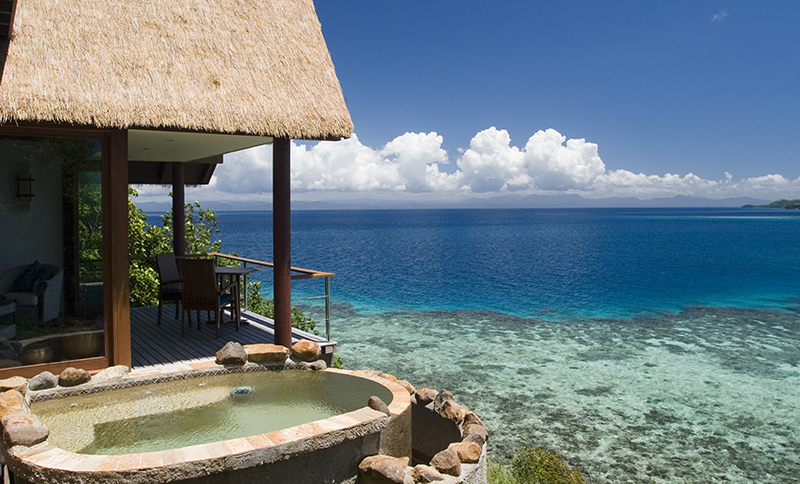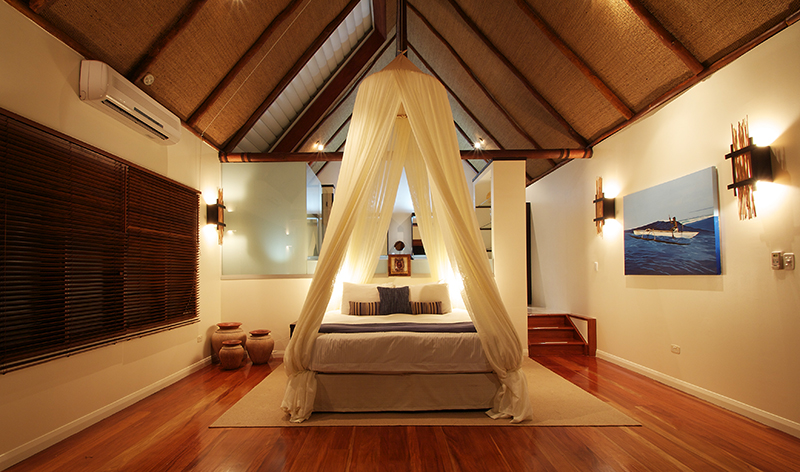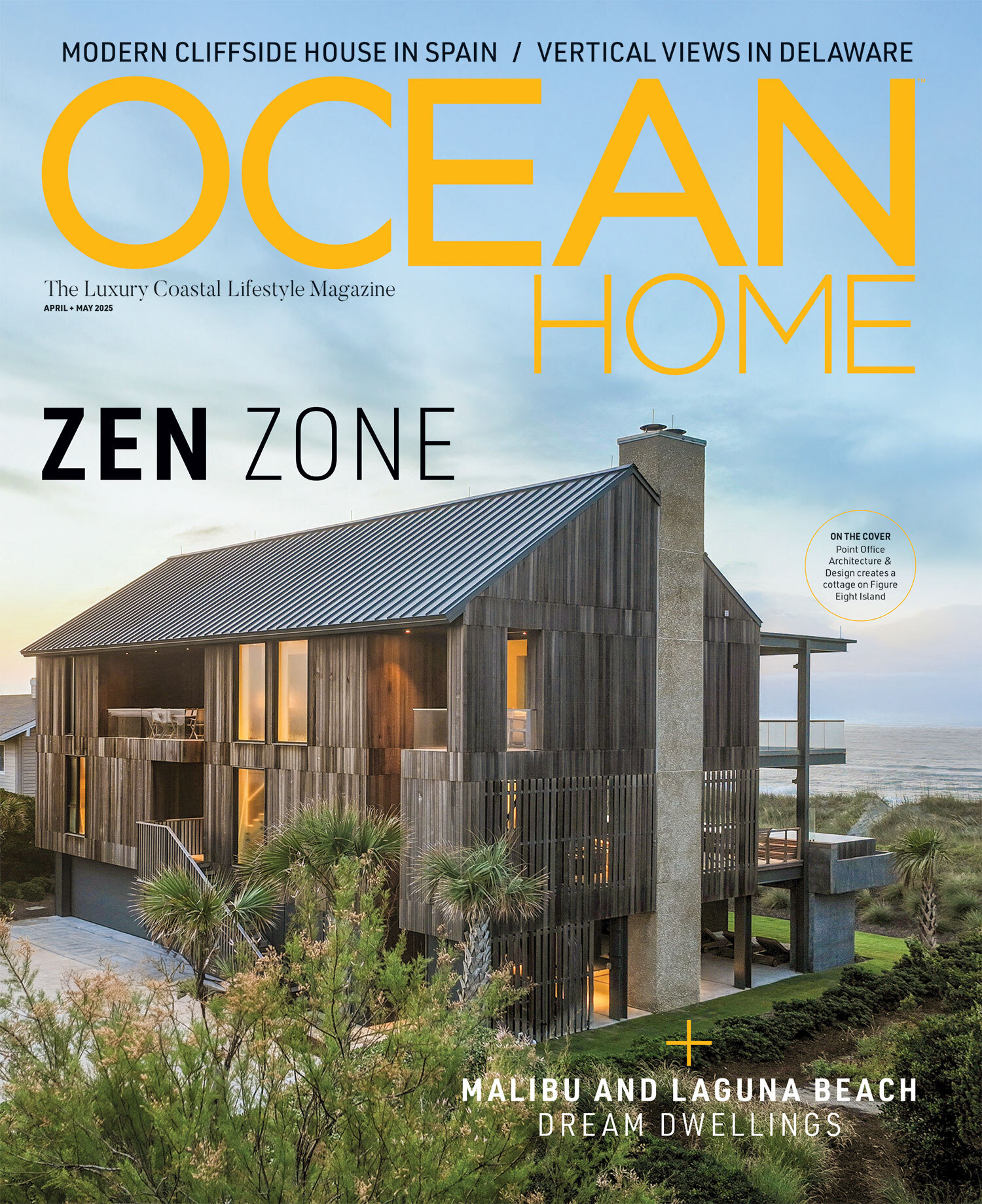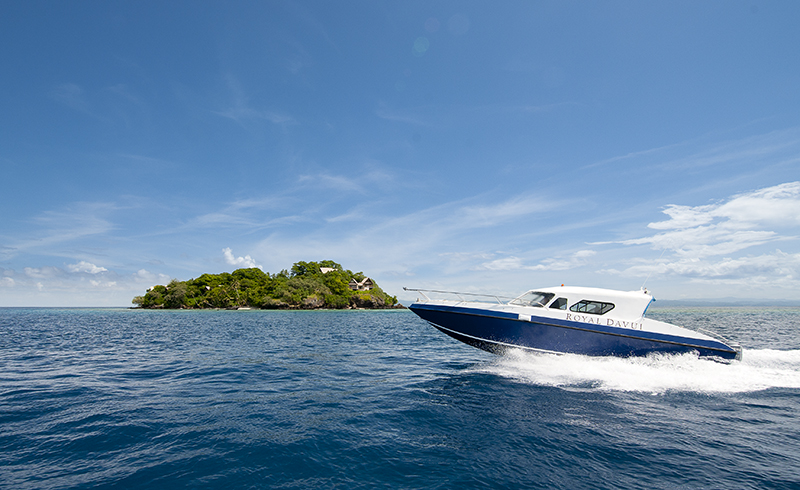Fiji is blessed with rivers and natural artesian springs and offers bountiful options for recreation on the water, as the nation’s more than 300 islands rise barely above sea level. Guests of the Royal Davui resort are introduced to this aqueous world almost immediately as they arrive by boat after a short trip by private plane from Nadi airport across Viti Levu, Fiji’s main island. Visitors of the more adventurous persuasion can go white water rafting through layered, misty canyons of the rural highlands of Viti Levu. Or, they can zipline over a river or go sea kayaking, snorkeling, or scuba diving. An introductory dive course take less than an hour, and even those who fear the deep may be comfortable enough to survey the blue starfish, the shy clownfish, and the fat sea cucumber on the ocean floor. The island is fringed with a coral reef bearing shades of yellow, pink, and white, plus its rainbow array of marine wildlife. At Royal Davui, color is everywhere.
Visitors looking for romance should picnic on the resort’s exquisite sand quay, which is available according to the whim of the tides for one couple at a time. This sand spit, located a short boat ride from the resort, elegantly demonstrates the balance between exploration and serenity, between the normative state of things and luxury. Nature and indulgence are not always at odds, and the resort has been built around existing trees and seems well at ease with its surroundings, though it is a state of nature improved upon itself with invisible mosquito repellants and filters for the drinking water.
Tourism is the leading industry of Fiji, with the largest contingent visiting from nearby Australia. Beqa Lagoon, where Royal Davui lies, is no exception, and many of the local villagers work for hotels, with subsistence farming and fishing also supporting their communities.
Christopher Southwick, a fifth-generation Fijian who operates the resort on behalf of the Southwick family, explains that as the resort came to completion, its management held a hiring day in Beqa’s closest village, inviting all the surrounding villages to apply. “We wanted to give our neighboring villages the first chance to apply before we looked elsewhere,” says Christopher. After hiring, they brought in chefs from Australia to train the kitchen staff and other professionals to train the front office and restaurant staff, being careful not to over-train the staff so as to encourage them to maintain their relaxed Fijian hospitality and cultural identity.
 |
In general, the resort has close ties with the local Fijian people, and it employs a total of 40 people from nearby villages who boat in every day. Another 20 or so live in the staff quarters on the island, and every Sunday, many attend a Methodist church service (indigenous Fijians are predominantly Methodist) conducted in Fijian on Beqa Island. Guests to the service are welcomed, as they are in most places in Fiji, with unassuming grace and a warm smile.
The resort’s food is about 90 percent local—some more local than others, since everything except the day’s catch and some of the fruit must be boated in, even if it is only from Beqa Island, which is less than two miles away. The majority of the taro is sourced from villages on Beqa Island. This means that the resort helps support local village livelihood while also providing fresh organic food for its guests. Such reassurances ease the conscience of the skeptical post-Colonial traveler to the third world, of which Fiji is still a part.
The resort’s relationship with the staff is far from typical. “We are very open with our staff and we really do run the resort with the feeling of an extended family all working together,” says Christopher. “We have regular staff meetings to ensure they have everything they need to make their jobs easier and that they are happy. They, in return, are very open toward us.” By extension, the staff is often open with guests, and, if engaged, will evoke deeply compelling personal anecdotes, often with the backstory that the resort’s management has personally helped to extract them from difficult situations.
This is an attitude shared by Christopher’s father Grahame Southwick, an abalone diver turned fisherman turned businessman. After years of making his living in the ocean, Grahame has discovered a passion in Hobie Cat racing and has taught several Fijian youth how to race the twin-hulled catamarans as well. Gus, the 18-year-old Fiji Youth Hobie Cat racing champion, whom Grahame picked up off the docks of Suva as a loitering youngster and taught to sail, now gives Hobie Cat lessons at the resort.
The ocean around the island is usually relatively calm, being protected by a large reef farther to sea that provides the barrier for Beqa lagoon. “The tides are very kind to Royal Davui,” says Christopher. “We have a great deal of respect for the water around us—it is our biggest asset. We do all we can to maintain the natural beauty of the lagoon.”
 |
At Royal Davui, guests may go out on a fishing boat to try to catch their own dinner. Farther out, the fishing guide will place lines behind the boat and cruise quickly enough to keep the lines taut. One afternoon, in the water obscured by the foam coming off the boat, shapes move through the water. It’s difficult to determine what they are, but one thing is certain: They are moving along with the boat. The guests laugh and point. “Dolphins!” they cry, as three of the creatures shoot from the water, leaping, arcing, and racing the boat. Afterwards, as the sun sets, the guests lounge and compare their tan or sunburn lines.
Grahame jokes that every shower a guest takes here will restore two years to his life, because the resorts’s mineral-heavy water comes from a sacred spring high on Beqa Island. Grahame acquired access to the spring by meeting with villagers and promising to pump down water to Beqa’s villages, in addition to supplying the resort via an underwater pipeline. There is more than enough water for everyone, but Royal Davui regulates how much fresh water it pipes in so that the runoff does not disturb the surrounding coral beds.
Royal Davui welcomes only guests over the age of 16. All accommodations feature sleeping pavilions, oversized bathrooms with Jacuzzi tubs and separate marble showers, two outdoor decks for private dining and lounging, a private plunge pool overlooking the ocean, and other amenities. Prices include food and some activities, with discounts available for stays of five nights and more. Between November 1, 2012 and March 31, 2013, couples staying longer than four days may also qualify for a free elopement-style wedding.
THE DETAILS
Fiji is one of the more accessible destinations in the South Pacific, with daily flights from Los Angeles. Royal Davui will typically arrange complimentary plane/launch transfers from Nadi airport, with the additional option to helicopter from Nadi directly to the island.




